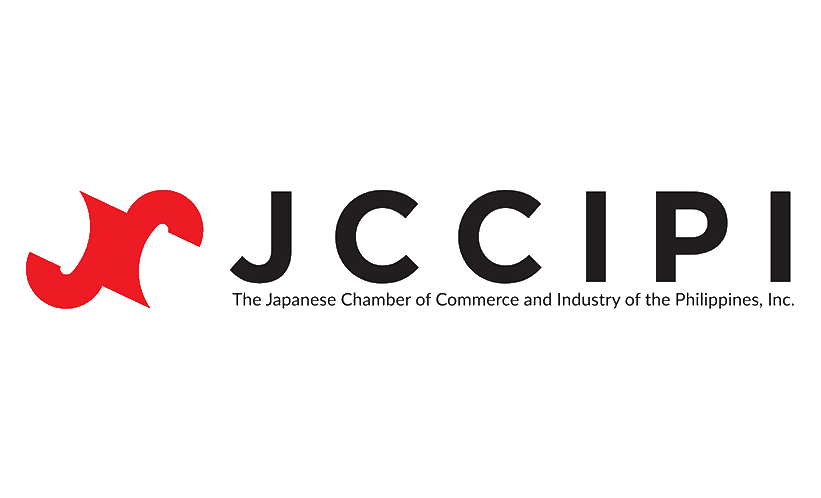[OPINION] Structural weaknesses in our economy: What to do?
October 19, 2018 at 16:30
Structural weaknesses in our economy: What to do?
In my last column, “The Structural Weaknesses of the Philippine Economy,” I said that the recent economic data show the structural weaknesses of the Philippine economy: low agricultural productivity, weak export growth, and undiversified export base, with much export concentrated in low value-added electronics sector.
The structural weaknesses are manifested in our widening current account and balance of trade deficits and vulnerability to all sorts of shocks, from food supply to oil price shocks. The structural weaknesses also constrain the country’s economic growth because the BSP would have to slow down the economy lest rising inflation or a steeply falling peso destabilizes the economy.
I traced these structural weaknesses to the four binding constraints I keep writing about: 1. Monopolies in strategic industries, namely, telecommunications, shipping, and ports. 2. The National Food Authority’s monopoly on rice importation and the Department of Agriculture’s obsession with an unrealistic rice self-sufficiency policy, 3. Labor rigidities, in the form of high entry-level wages relative to productivity, and highly restrictive labor security regulations in the Labor Code, and 4. Overregulation of the rural land market due to CARP (Comprehensive Agrarian Reform Program) restrictions and Department of Agrarian Reform’s overreach of its powers.
These binding constraints are responsible for the country’s inability to increase and diversify its exports, particularly toward agricultural and labor-intensive exports; to increase agricultural productivity that will lower food prices and make the economy more resilient to natural disasters and other food supply shocks; and to build up the manufacturing sector with high-paying jobs for the mass of unemployed and underemployed.
What should we do now?
1. Congress should do a surgical amendment to the Constitution by removing the foreign ownership restrictions in the Constitution. Congress should forget about federalism for now because federalism is still contentious and is a net negative for the economy. However, politically, focusing on the economic provisions is more feasible and timely.
Removing the foreign ownership restrictions in the Constitution will dramatically increase foreign investments and help finance the growing current account and balance of trade deficits. It will facilitate more competition in strategic industries, and lower prices and increase the quality of transportation, telecommunications, and other services. Liberalization will also make manufacturing and agriculture more competitive, as the output of these strategic industries (transport and telecoms) are inputs to manufacturing and agriculture. Finally, liberalization will improve the quality of infrastructure because foreign investors can fully invest in airports, seaports, mass transport systems and operate them.
The second best solution is for Congress to pass the Philippine Service Act Amendment. The PSA Amendment will remove transportation and telecommunications from the definition of public utilities, paving for 100% foreign ownership in transportation and telecommunications. The PSA Amendment has been passed by the House and is pending approval in the Senate. President Duterte should certify the bill as urgent.
2. Abolish the NFA rice importation monopoly and fully liberalize rice importation. The bill passed by the House is defective: it allows the NFA to continue licensing and regulating traders. The Senate should completely abolish the NFA’s rice import monopoly and remove its regulatory and licensing functions.
If rice consumers are to fully benefit from the lower rice prices because of import liberalization, the government should set the lowest possible tariff revenue. The 35% tariff set in the various bills will just encourage smuggling. Besides, the so-called revenue from the high tariff will probably be lost to graft and corruption, just like what happened to the Road Users Tax and the Agricultural Competitiveness Enhancement Fund. Better to give the tariff revenue as a direct subsidy to rice farmers.
3. Defer TRAIN 2 or the rebranded TRABAHO tax reform bill. TRABAHO is causing a lot of uncertainty, particularly for investors in PEZA enterprises. PEZA investments have already fallen to P88 billion, a drop of 55%, in the first nine months of the year. It’s also a reckless gamble at a time when we badly need more exports and BPO revenue growth to offset the growing BOT and current account deficits.
The Department of Finance (DoF) should go back to the drawing board. TRABAHO is wrongly designed. In its desire to curb abuses, it is throwing out the baby with the bathwater. Even its maximal position is politically infeasible, creating a lot of enemies, from tertiary school owners to BPO investors. Politically powerful interests, such as gaming, geothermal, and renewable energy, have gotten exemptions under the House bill, undercutting the legitimacy and moral position of DoF’s claim toward performance-based and time-bound incentives.
4. We need to promote responsible mining because we need mineral exports as a huge dollar-earner, just as it is in Australia. President Duterte’s proposal to ban mining altogether is stupid and simplistic. In fact, given our weak institutions, banning mining will only result in more illegal miners not following environment laws.
5. Tourism is another potential winner. It generates jobs in the countryside and is a dollar earner. However, tourism’s potential cannot be realized for so long as our tourism infrastructure remains poor and decrepit. Unfortunately, President Duterte likes to keep nonperforming assets like Transportation Secretary Tugade in his Cabinet.
In this regard, the Duterte government should pivot back toward the PPP mode of financing and implementing projects. Its shift toward ODA (Official Developmental Assistance) has proven to be a bust. The Chinese and Philippine bureaucracies are expectedly slow. Moreover, Chinese ODA is subject to currency and geopolitical risks.
6. The government should stop taxing labor-intensive industries. Businesses, especially SMEs, are suffering from a high legal minimum wage, too many holidays, increased SSS pensions, restrictive labor-security regulations, and other impositions. The government is threatening to punish businesses more with anti-employment measures, all but ensuring that labor-intensive industries, such as garments and light manufacturing, stay away and capitalists substitute machines for labor. These anti-labor utilizing measures include the ending ENDO bill, which President Duterte certified as urgent, and the mandatory 105 maternity leave for women workers.
We need a farsighted and courageous politician who will shepherd amendments to the restrictive provisions in the Labor Code and make stakeholders agree to a win-win solution. For example, minimum wages and the labor security provisions can be waived in exchange for the business to be a closed union shop, i.e. for laborers to be members of unions. This will allow for labor unions to support the Labor Code amendments for flexible labor policies and enable unionized labor to expand membership and capture some of the profits of companies through collective bargaining agreements.
If we don’t amend the restrictive provisions in the Labor Code, we will never be able to industrialize and we will continue to export labor as the source of our dollar revenue.
7. Steps must be taken toward a freer rural land market. Congress needs to pass a Farmland as Collateral bill to enable CLOAs (Certificate of Land Ownership Awards) to be bankable, to remove the regulations on leasing, and enable non-original landowners to buy more than five hectares of land. Since CARP-ER (Comprehensive Agrarian Reform Program with Extension and Reforms) has expired, the Department of Agrarian Reform (DAR), guilty of overreach and overregulation, must be abolished or repurposed, like the National Food Authority. Lastly, collective CLOAs, which represent 50% of all CLOAs, must be broken up into individual CLOAs.
For so long as the rural land market remains restricted, capital, management, and technology will not flow into agriculture, ensuring our continued low agricultural productivity. Wrong policies, such as free irrigation and rice self-sufficiency, are currently driving agriculture, thanks to another nonperforming asset, Agriculture Secretary Manny Piñol. No surprise that agriculture will post almost flat growth for the year, amid rising food prices and fast population growth.
Recent economic data — rising food prices, sharply widening current account and balance of trade deficits, anemic agricultural performance, and weak export growth and undiversified export base — are the canaries in the coal mine. These show the structural weaknesses of the Philippine economy and warn of the deeper dangers ahead.
BBB — the government’s signature infrastructure program — will not fix these structural problems. Presidential bluster is also not enough. If change is coming, then let it be structural change.
Source: https://www.bworldonline.com/structural-weaknesses-in-our-economy-what-to-do/




























